The Effect of Job Displacement on College Enrollment: Evidence From Ohio
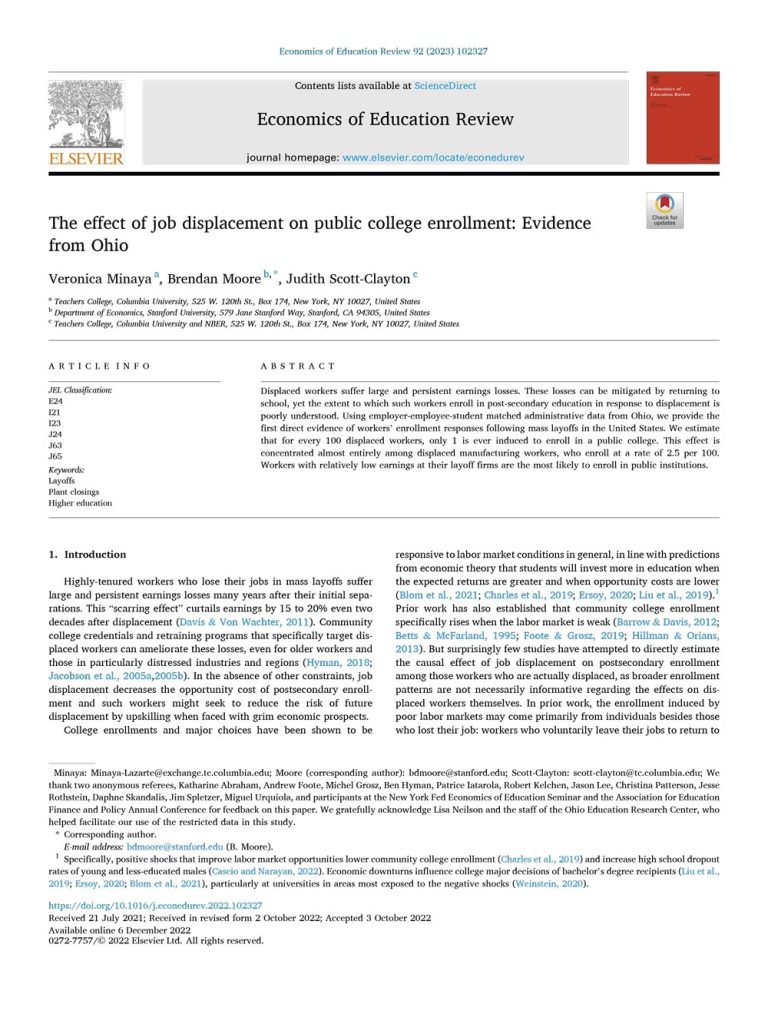
Using employer-employee-student matched administrative data from Ohio, this paper provides the first direct evidence of workers’ enrollment responses following mass layoffs in the United States.
Preparing for Tomorrow’s Middle-Skill Jobs: How Community Colleges Are Responding to Technology Innovation in the Workplace
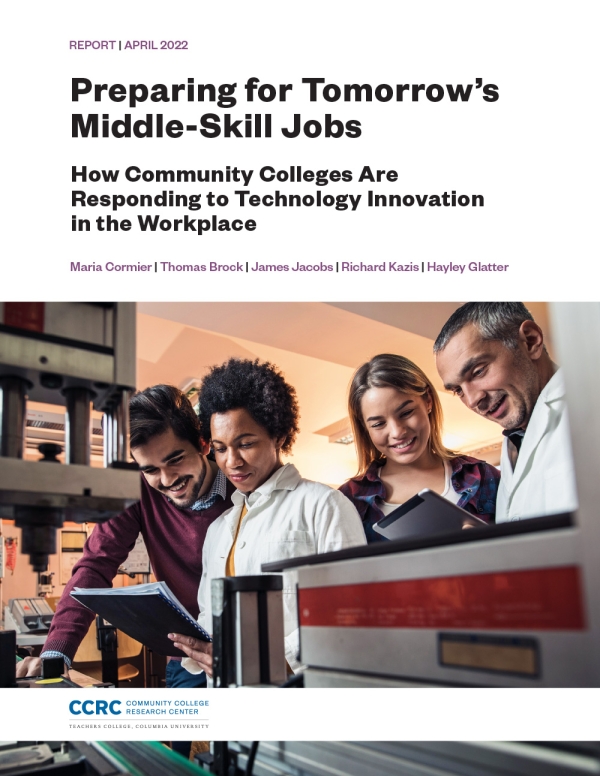
Based on fieldwork at eight institutions, this report describes how community colleges are responding to workplace technology innovation by adapting their workforce programming, diversifying pathways to certificates and degrees, and addressing equity concerns.
Patterns of Community College Use Among Working Adults
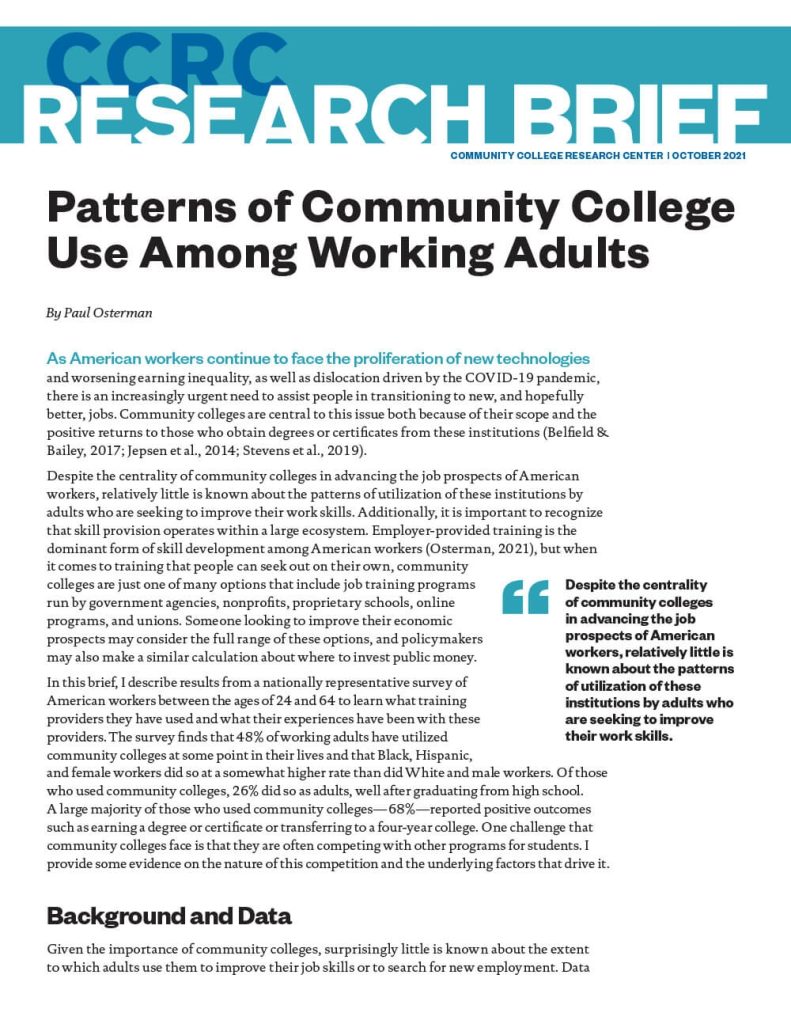
This brief describes results from a nationally representative survey of American workers aged 24–64 to learn what training providers they have used and what their experiences have been with these providers.
Strategies for Improving Postsecondary Credential Attainment Among Black, Hispanic, and Native American Adults
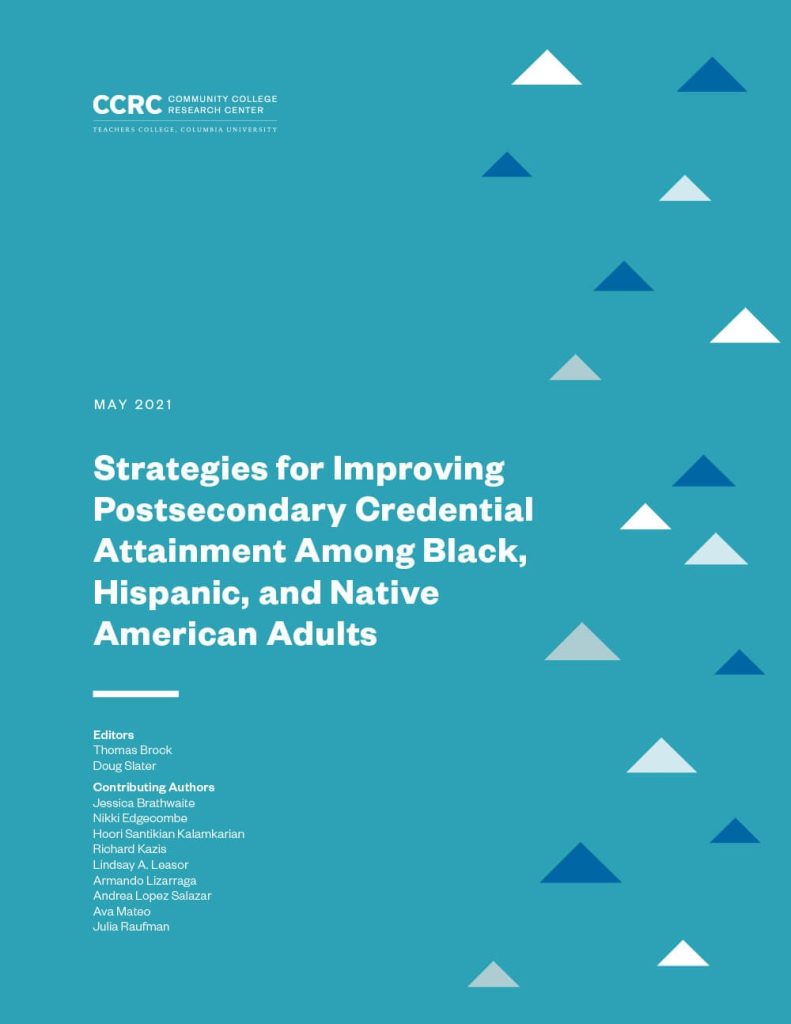
This set of three studies examines what states and community colleges can do to address the needs of racially minoritized adult learners who are pursuing postsecondary education and training as a path to re-employment, better jobs, and higher incomes.
Strengthening Community College Workforce Training
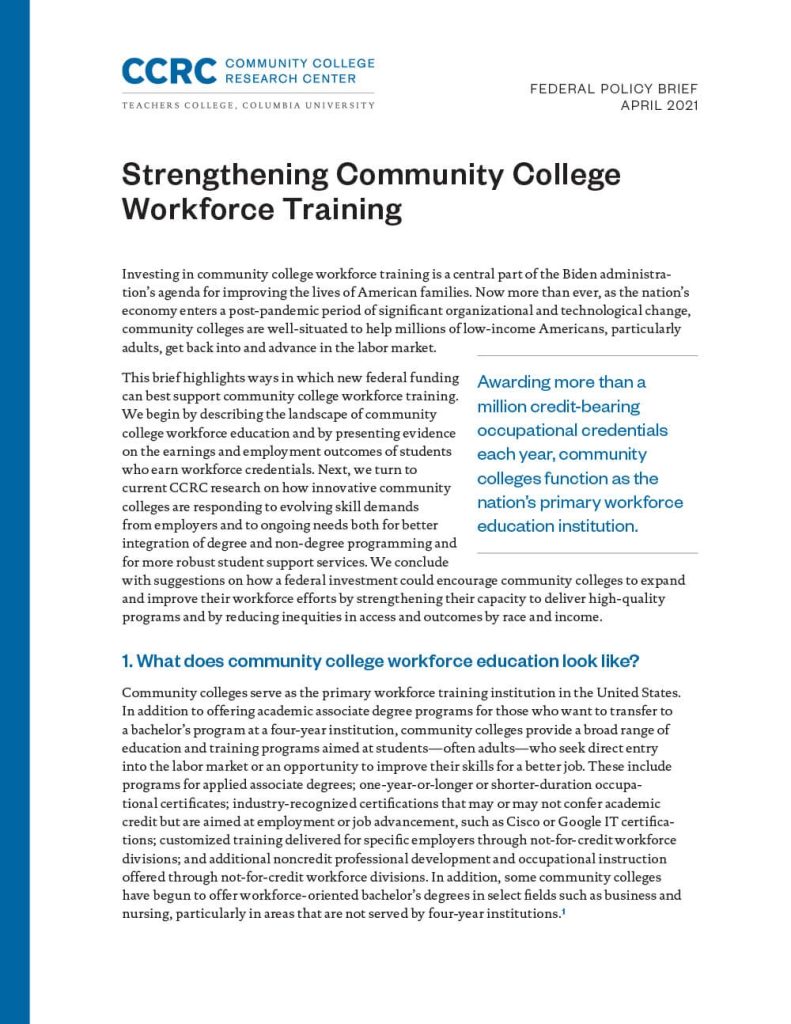
This brief describes the substantial role community colleges play in workforce education, what innovative colleges are doing to improve programming and labor market outcomes for participants, and how the federal government can support these efforts.
